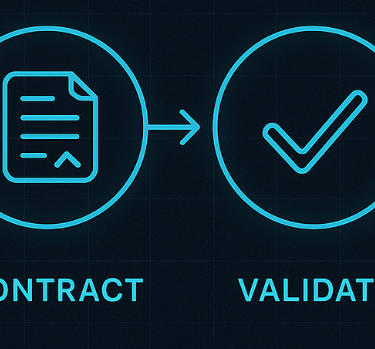Adaptive Systems Integration Loop


Architecture into interoperability.
Mission Statement
ASIL turns requirements into modular components with explicit interface contracts. It separates mission logic from technical plumbing and enforces MOSA through automated validation every sprint, milestone, and merge. Every integration is verified against open profiles and known performance bounds. Faults are injected early so failures are cheap and visible.
Doctrine Overview


Break the system into roles: data source, processing engine, policy boundary, presentation.
Define schemas, protocols, and SLAs.
Run interface tests, performance checks, and fault injection on each merge.
Gate at integration, pre-deploy, and release with recorded evidence.
Operator Checklist
Interface Contract
Component role identified
Transport selected and documented (REST, gRPC, DDS, AMQP)
Authentication method set (mutual TLS, JWT, device cert)
Schema versioned and diff checked
Error model defined with retry and backoff rules
SLA written: p50, p95 latency, throughput, and jitter
Automated Tests
Contract tests pass against mock and real provider
Negative tests for malformed payloads and auth failures
Backward compatibility tests pass (N-1 schema)
Performance test passes under defined load
Fault injection executed: packet loss, latency spike, dependency down
Logs and metrics emitted with trace IDs
Gates
Integration Gate: all interface tests green, faults observed and explained
Pre-Deployment Gate: soak test complete, rollback plan documented
Release Gate: acceptance criteria met, waivers approved, evidence archived
MOSA Validation Cadence
ASIL runs a recurring validation cadence. Each merge triggers interface conformance tests, latency and throughput checks, and schema compatibility verification. Each sprint ends with a MOSA Gate where deviations, waivers, and corrective actions are recorded as evidence. Major milestones include an Integration Gate, a Pre-Deployment Gate, and a Release Gate. All artifacts feed OIFL so the next cycle starts with real data, not opinion.
